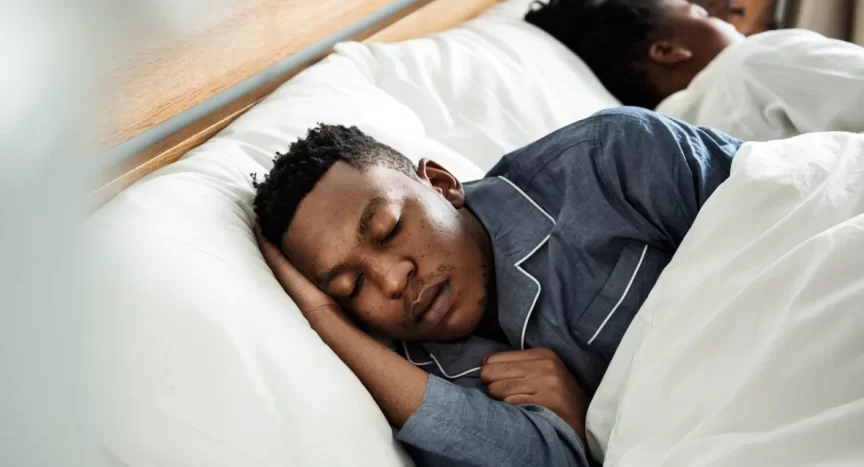Most of us already know how important sleep is for good health, but it can also extend your longevity and quality of life.
Eating well, getting plenty of movement, having strong social connections — there are many ingredients that go into the kind of healthy lifestyle that can help you live a long life. One habit that you absolutely must adopt to enjoy longevity and healthspan: Getting consistent, quality sleep.
Most of us already know how important sleep is for good health — and yet, more than one-third of adults get fewer than the recommended minimum 7 hours of sleep, and 10 to 15% of adults have chronic insomnia. The occasional night of poor sleep isn’t anything to worry too much about — but when those nights start adding up, that’s when trouble sets in.
“By not prioritizing your sleep, you’re accelerating the rate you age, sucking the energy out of every aspect of your life, and quite literally destroying your brain,” functional medicine expert Dr. Mark Hyman, author of “Young Forever“, wrote in a recent blog post.
How sleep affects longevity
There are many ways that sleep benefits your health, and can even help extend your life and healthspan.
- Heart health. Lack of consistent quality sleep increases the risk of heart disease, stroke, and other ailments, research shows. During certain stages of sleep, stress on the heart is reduced as heart rate slows, blood pressure lowers, and breathing evens out. Without quality sleep, the heart doesn’t get this crucial rest.
- Immunity. If you’ve noticed that you’re more susceptible to colds when you don’t get enough sleep, you’ve already had a taste of how sleep affects immunity. While you sleep, your body produces certain proteins and antibodies that protect you from illness. Without enough quality sleep, your body is left more vulnerable. Chronic lack of sleep also can cause inflammation.
- Weight. It’s much harder to lose or even maintain weight without consistent sleep. The hormones that affect hunger and satiety are tied to sleep, so you may feel more hungry when you haven’t had adequate sleep. Plus, when we haven’t slept well, we tend to crave foods that are high in calories and carbohydrates, as our bodies seek the quick energy those foods provide. Poor sleep also can adversely affect metabolism.
“Hormones like ghrelin (the ‘hunger hormone’) and leptin (the ‘satiety hormone’) prompt you to reach for sugary snacks, setting the stage for insulin resistance (chronic insulin resistance can lead to diabetes),” Dr. Hyman writes in his blog post.
Plus, “constantly depriving yourself of sleep ramps up inflammation in your body, exacerbating just about every health issue imaginable and contributing to the development of insulin resistance, diabetes, and cancer,” he writes.
Habits for better sleep (and a long life)
Here are some of Dr. Hyman’s recommendations to improve your sleep:
- Set a schedule. Try to go to sleep and wake up at the same time every day. Consider the earliest time you need to get up, count backward 7 to 8 hours, and set that as your bedtime. Stay consistent, even on weekends — this will help your body to feel drowsy and alert at the right times.
- Wind down. Make a routine for yourself that you do every night before bed. Make it short and easy, like a bath or shower, listening to quiet music, reading a book, making a to-do list for the next day — two or three relaxing things you do in the same order at the same time each night.
- Create a cave. Make your bedroom as dark as possible and cool — Dr. Hyman recommends 65 to 67ºF. Wear a sleep mask if you can’t make the room dark.
- Guard your bed. Use your bed for sleep and sex only; avoid scrolling your phone, working, or doing other things there. “This trains your brain to associate your bed with its intended purpose, not sending texts and watching TikTok,” Dr. Hyman writes.
- Sip wisely. Quit caffeine at noon for the day and avoid alcohol before bed, as both can disrupt sleep.
This article originally appeared on Clean Plates.
!function(){var g=window;g.googletag=g.googletag||{},g.googletag.cmd=g.googletag.cmd||[],g.googletag.cmd.push(function(){g.googletag.pubads().setTargeting(“has-featured-video”,”true”)})}(); ( () => { ( ( cb ) => { window.tpd = window.tpd || {}; if ( true === tpd.cmpReady ) { console.log( ‘[TPD][Brid] CMP was already ready, running player.’ ); cb(); return; } let tpdCmpReadyListener = () => { console.log( ‘[TPD][Brid] CMP ready event fired, running player.’ ); window.removeEventListener( ‘tpd:cmpCb’, tpdCmpReadyListener ); cb(); }; window.addEventListener( ‘tpd:cmpCb’, tpdCmpReadyListener ); } )( () => { let s = document.createElement( ‘script’ ); s.src = ‘https://player.target-video.com/player/build/targetvideo.min.js’; s.async = true; let target = document.getElementById( ‘Brid_21951’ ); target.parentElement.insertBefore( s, target ); window._bp = window._bp || []; window._bp.push( {“div”:”Brid_21951″,”obj”:{“id”:”41122″,”width”:”1280″,”height”:”720″,”stickyDirection”:”below”,”playlist”:”21951″}} ); } ); } )();
More must-reads:





